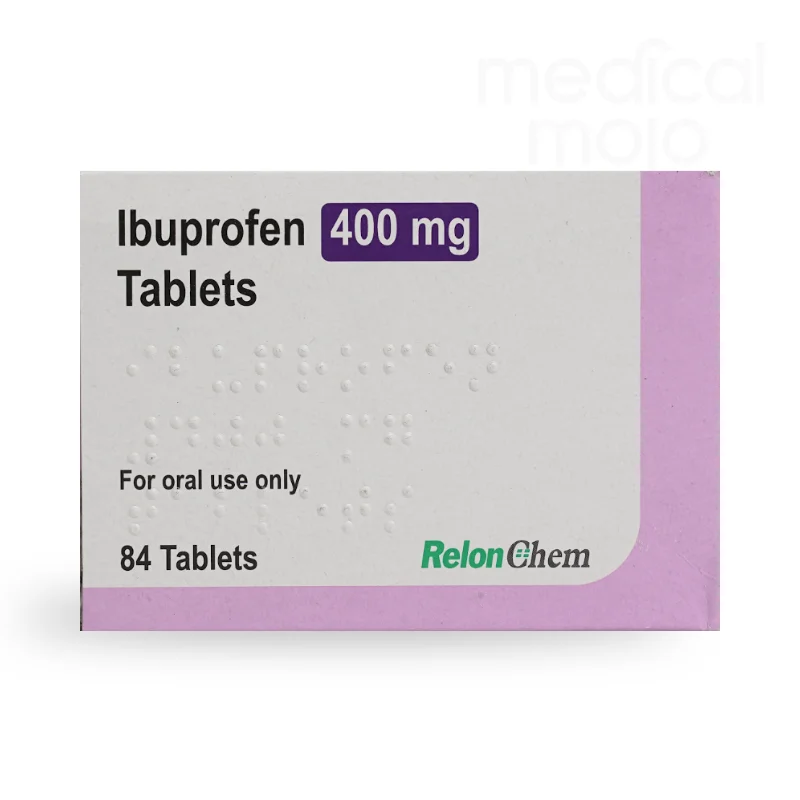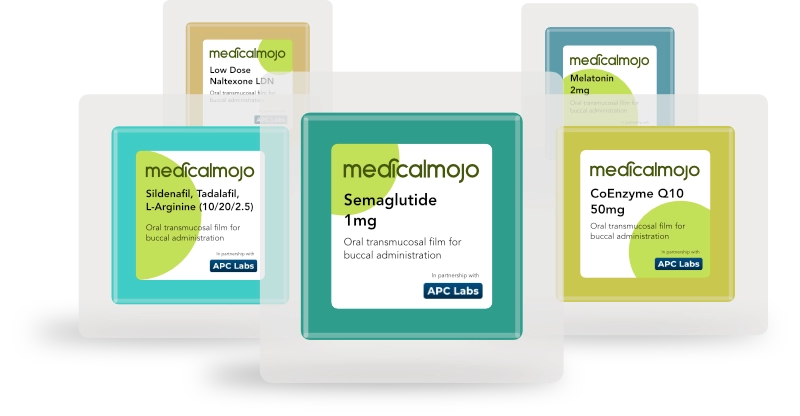Do Not Take Ibuprofen If:
- You are allergic to ibuprofen or any other ingredients in this medication (refer to section 6).
- You have experienced allergic reactions, such as asthma, a runny nose, itchy skin rash, or swelling of the lips, face, tongue, or throat after taking aspirin (acetylsalicylic acid) or other NSAIDs (non-steroidal anti-inflammatory drugs).
- You have previously experienced gastrointestinal bleeding or perforation linked to the use of NSAIDs.
- You currently have or have had stomach or intestinal ulcers or bleeding (duodenal ulcers), especially if you've had two or more episodes.
- You have severe liver, kidney, or heart problems.
- You are in the last three months of pregnancy.
- You are severely dehydrated due to vomiting, diarrhea, or insufficient fluid intake.
- You have active bleeding (including in the brain).
- You have a condition of unknown origin affecting the formation of blood cells.
Ibuprofen is also contraindicated in children under 12 years of age.
Warnings and Precautions
Consult your doctor before taking ibuprofen if:
- You have Systemic Lupus Erythematosus (SLE) or mixed connective tissue diseases.
- You have a hereditary blood pigment disorder called porphyria.
- You have chronic inflammatory bowel diseases like ulcerative colitis, Crohn’s disease, or other stomach or intestinal issues.
- You have blood cell formation disorders or problems with normal blood clotting mechanisms.
- You have allergies, hay fever, asthma, chronic nasal swelling, sinus issues, adenoid issues, or chronic obstructive respiratory disorders, as these conditions increase the risk of airway constriction and difficulty breathing (bronchospasm).
- You have liver, kidney, or heart problems.
- You have recently undergone major surgery.
- You are in the first six months of pregnancy.
- You are breastfeeding.
- You have an infection—please refer to the "Infections" section below.
- You are taking ibuprofen for longer than recommended or at higher doses than advised, as this can lead to serious harm, including stomach/gut and kidney issues, as well as very low blood potassium levels, which can be fatal (see section 4).
Allergic Reactions
Signs of an allergic reaction to ibuprofen include breathing difficulties, swelling of the face and neck (angioedema), and chest pain. If you notice any of these symptoms, stop taking ibuprofen immediately and seek medical attention.
Infections
Ibuprofen can mask signs of infections, such as fever and pain, which may delay appropriate treatment and increase the risk of complications. This has been observed with bacterial pneumonia and bacterial skin infections related to chickenpox. If you have an infection and your symptoms persist or worsen, consult a doctor promptly.
Elderly Patients
Elderly patients are more prone to side effects, particularly bleeding and perforation in the digestive tract, which can be fatal.
Stomach and Intestinal Issues
If you have previously had a stomach or intestinal ulcer, especially one complicated by perforation or bleeding, be vigilant for any unusual abdominal symptoms and report them to your doctor immediately. This is especially important at the start of treatment, as the risk of gastrointestinal bleeding or ulceration is higher, particularly in elderly patients. If you experience bleeding or ulceration, discontinue treatment immediately.
Bleeding, ulceration, or perforation can occur without warning, even in patients with no previous gastrointestinal issues, and may be fatal. The risk increases with higher doses of ibuprofen and when certain other medications are taken concurrently (see "Other Medicines and Ibuprofen" below).
Skin Reactions
Serious skin reactions have been reported with ibuprofen use. If you develop a skin rash, mucous membrane lesions, blisters, or other signs of an allergic reaction, stop taking ibuprofen immediately and seek medical attention.
Avoid using ibuprofen during chickenpox (varicella) due to the risk of serious skin reactions.
Heart and Brain Effects
NSAIDs like ibuprofen may be associated with a small increased risk of heart attack or stroke, especially when used at high doses. Do not exceed the recommended dose or duration of treatment (7 days for adults or 3 days for children and adolescents). Discuss your treatment with your doctor if you have heart problems, high blood pressure, diabetes, high cholesterol, or a family history of heart disease or stroke, or if you are a smoker.
Effects on the Kidneys
Ibuprofen can cause kidney damage, especially in patients with pre-existing kidney, heart, or liver problems, or those taking diuretics or ACE inhibitors, as well as in elderly patients. Stopping ibuprofen usually leads to recovery.
Aseptic Meningitis
Cases of aseptic meningitis (inflammation of the brain membrane without bacterial infection) have been reported during ibuprofen treatment, particularly in patients with autoimmune disorders like Systemic Lupus Erythematosus (SLE) or mixed connective tissue diseases, but also in patients without pre-existing conditions. Symptoms include a stiff neck, headache, nausea, vomiting, fever, or disorientation.
Other Precautions
Rarely, severe acute hypersensitivity reactions (e.g., anaphylactic shock) have been observed. If you experience any signs of a hypersensitivity reaction, stop taking ibuprofen immediately and seek medical attention.
Ibuprofen can temporarily inhibit blood platelet function, so patients with blood clotting disorders should be closely monitored.
Prolonged use of painkillers for headaches can make them worse (medication overuse headache). If you experience frequent or daily headaches despite using headache medication, stop taking ibuprofen and consult your doctor.
Habitual use of painkillers can cause permanent kidney damage and increase the risk of kidney failure.
Ibuprofen may mask the symptoms of an infection (fever, pain, and swelling) and temporarily prolong bleeding time. It may also decrease your chances of becoming pregnant. If you are planning to become pregnant or have difficulty conceiving, inform your doctor.
Use in Children and Adolescents
Ibuprofen should not be used in children under 12 years old. It may cause kidney problems in dehydrated adolescents.
Serious Skin Reactions
Serious skin reactions, including exfoliative dermatitis, erythema multiforme, Stevens-Johnson syndrome, toxic epidermal necrolysis, DRESS, and AGEP, have been reported with ibuprofen use. If you notice any symptoms of these reactions, stop using ibuprofen immediately and seek medical attention.
Alcohol
Avoid alcohol while taking ibuprofen, as it may enhance side effects, particularly those affecting the stomach, intestines, or central nervous system.
Pregnancy, Breastfeeding, and Fertility
If you are pregnant, breastfeeding, think you might be pregnant, or are planning to have a baby, consult your doctor or pharmacist before taking this medicine. Do not take ibuprofen in the last 3 months of pregnancy, as it could harm your unborn child or cause complications during delivery. Use in the first 6 months of pregnancy should only be done if absolutely necessary and under medical advice. If taken for more than a few days after 20 weeks of pregnancy, ibuprofen can cause kidney problems in the unborn baby, potentially leading to low amniotic fluid levels or narrowing of a blood vessel in the baby's heart. If you need treatment for more than a few days, your doctor may recommend additional monitoring.
Ibuprofen appears in breast milk in very small amounts, so breastfeeding usually does not need to be stopped during short-term treatment. However, if longer treatment is required, consider early weaning.
Driving and Using Machines
Ibuprofen generally does not affect the ability to drive or operate machinery. However, high doses may cause side effects such as fatigue, drowsiness, vertigo, or visual disturbances, which could impair your ability to drive or operate machinery safely. Alcohol consumption can exacerbate these effects.
Sodium Content
Ibuprofen contains less than 1 mmol of sodium (23 mg) per 200 mg/400 mg tablet, meaning it is essentially sodium-free.
Effects on the Kidneys
Ibuprofen can cause kidney problems even in patients without prior kidney issues, leading to swelling of the legs, heart failure, or high blood pressure in susceptible individuals. Stopping ibuprofen usually leads to recovery.












